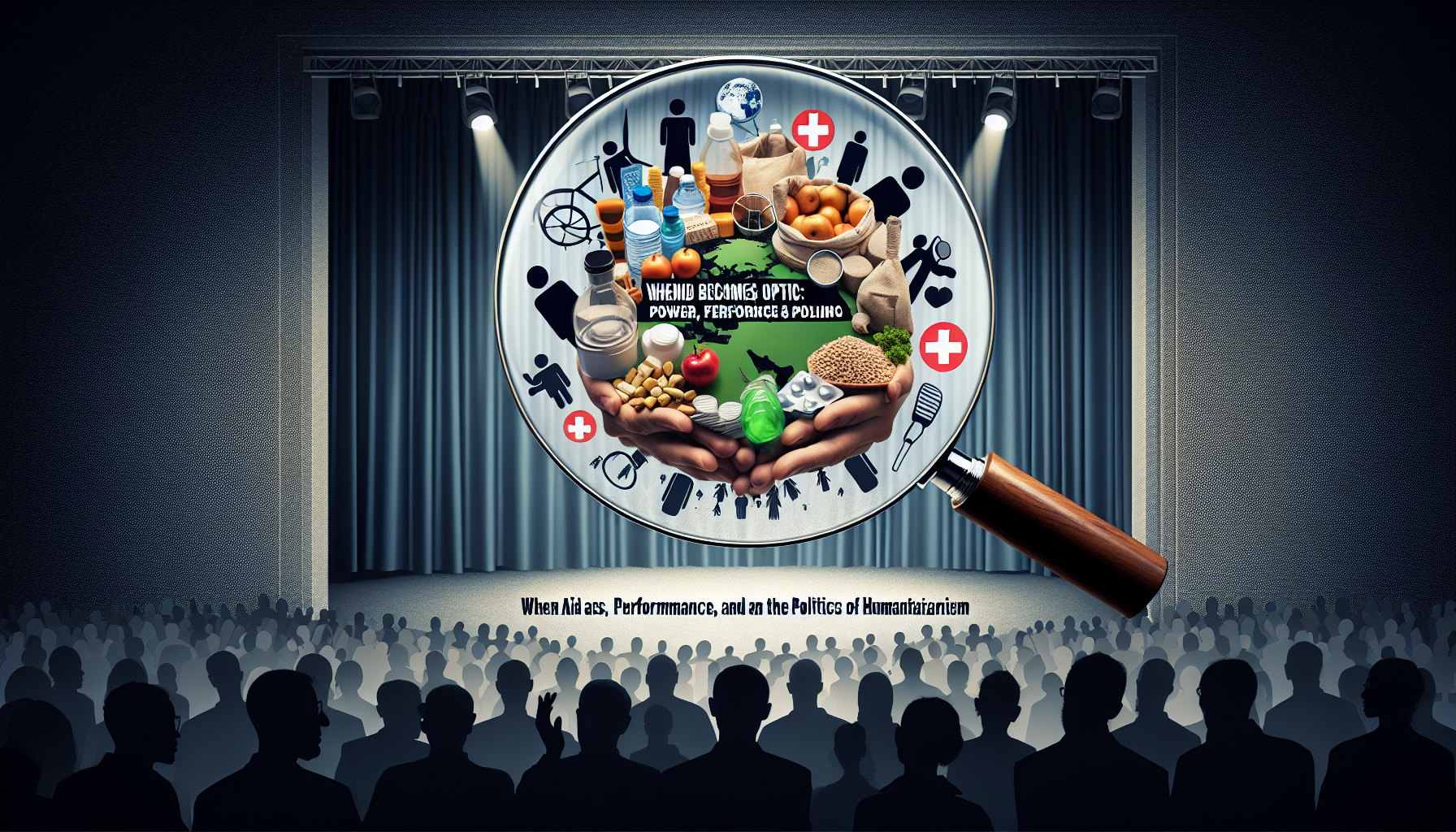Title: Aid and Optics: David Lammy, Sudan, and the Performance of Global Conscience
Dear readers,
What does it truly mean when aid becomes both an act of morality—and a message? When a pledge of relief walks the fine edge between necessity and narrative?
Let’s pan our lens from the glittering disasters of pop culture reality TV to a very different kind of stage: the London Sudan Conference, where diplomacy meets headlines, and Britain’s role in global humanitarian crises is cast not for ratings, but for reckoning. Or so we hope.
On 15 April 2025, UK Foreign Secretary David Lammy stood tall before a hall of global dignitaries, vowing £120 million in aid to war-torn Sudan. The soundbite? Decisive leadership. The details? As ever, far more complicated.
More Than a Promise—A Performance?
Let’s be clear: Sudan needs the aid.
The brutal civil war, now dragging into its third year, has become a humanitarian black hole from which 12.7 million people have been forcibly displaced. Entire communities erased, young children buried beneath headlines, and over 600,000 people still in dire need of food, medicine, and shelter. So there’s no doubt that this £120 million—allocated for essentials like pulses, oils, salt, cereals, even emergency support for survivors of sexual violence—is badly needed.
But here’s the tension: this is not the UK's first donation—and certainly not its largest. Just months ago, in November, another £113 million was promised. Yet this generosity unfolds against a deeper shift: the Labour government’s controversial decision to slash future UK development assistance from 0.5% of GDP to a frugal 0.3% by 2027.
If this were a Netflix limited series, we might call it: “Budget Cuts & Big Announcements: The Politics of Aid.”
A Show of Solidarity or Soft Power?
Lammy’s speech shimmered with diplomatic choreography, co-hosted as it was alongside the African Union, Germany, France, the EU, and prominent attendees from South Sudan to Saudi Arabia. His condemnation of the conflict as “brutal” felt appropriately somber. But one can’t help asking: how much of this moment was strategy, not sacrifice?
Let’s not forget: humanitarian pledges also act as foreign policy puppets. They flex influence. They scrape together international credibility. And in an age where public trust in Western governments is threadbare, they offer great PR. In realpolitik terms, the Sudan Conference was a double move: moral leadership, yes—but also a quick photo op before slashing the very institutional legs aid programs stand on.
We’ve seen this film before.
The Feel-Good Illusion of Generosity
Consider this: £120 million—over one financial year—is a shotglass in the desert when compared to the scale of suffering. The World Food Programme has claimed $4 billion is needed to stabilize the situation across Sudan and its neighboring refugee routes. By that metric, the UK’s contribution is generous—but hardly game-changing.
Compare this to a parallel scandal: the UK government's recent approval of £7.5 billion in arms exports to Saudi Arabia—ironically, one of the co-attendees at this same conference. This is where the contradiction sharpens. We pledge grains and trauma support with one hand, while shaking hands with those who have helped fan other regional conflicts with the other.
It begs a darker question: is humanitarianism now something to be deployed just in time for prime coverage?
The Real Work Lives Where Cameras Don’t
To his credit, Lammy has spent years cultivating a reputation for progressive internationalism. He has been a vocal advocate for racial justice, refugee rights, and multilateral diplomacy. But intention must answer to infrastructure.
Real leadership on Sudan will not be measured by a Westminster soundbite. It will live in bureaucracies that don’t trend on Twitter. It will be forged in blurry satellite images of displaced families moving en masse across borders, unreachable by aid workers, unknown to NGOs. It will mean fighting internally to defend—not defund—foreign aid commitments that tend to disappear precisely when headlines fade.
And it will mean speaking against powers within the same summit halls who remain complicit in enabling militarized regimes.
Lessons from a London Podium
This story isn’t just about Sudan. It’s about a global order where crisis response often headlines as photojournalism, but footnotes as policy. Where moral gestures are made in six-figure increments, while structural funding collapses quietly offstage.
And perhaps most sobering of all: when aid becomes theater, the audience doesn’t always realize they’re part of the show.
Until next time, stay interrogative. In a world where compassion can be curated, and press releases masquerade as policy, our discernment isn’t cynical—it’s the start of real advocacy.
Yours truthfully,
A Watcher of Speeches and Silences

